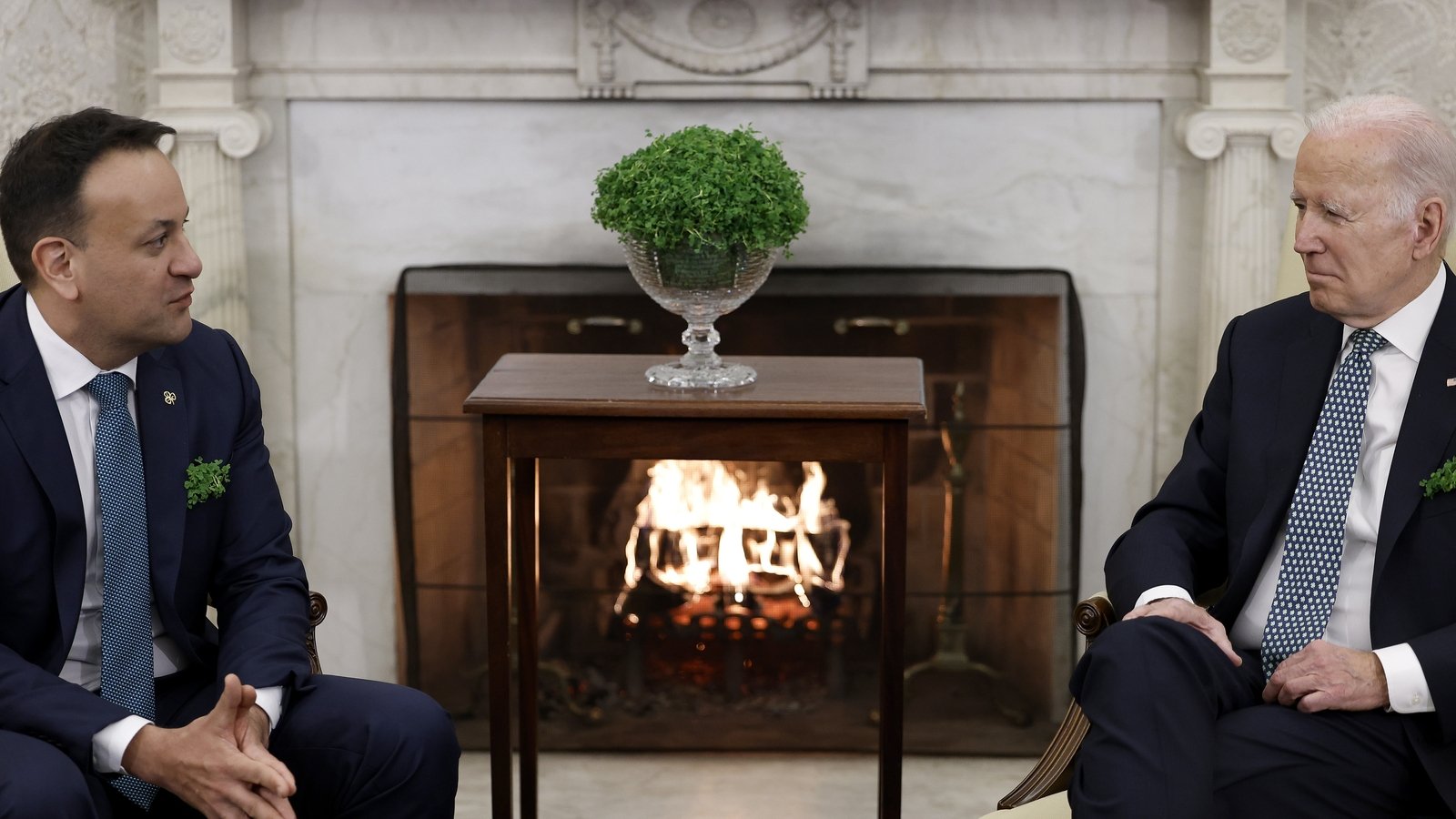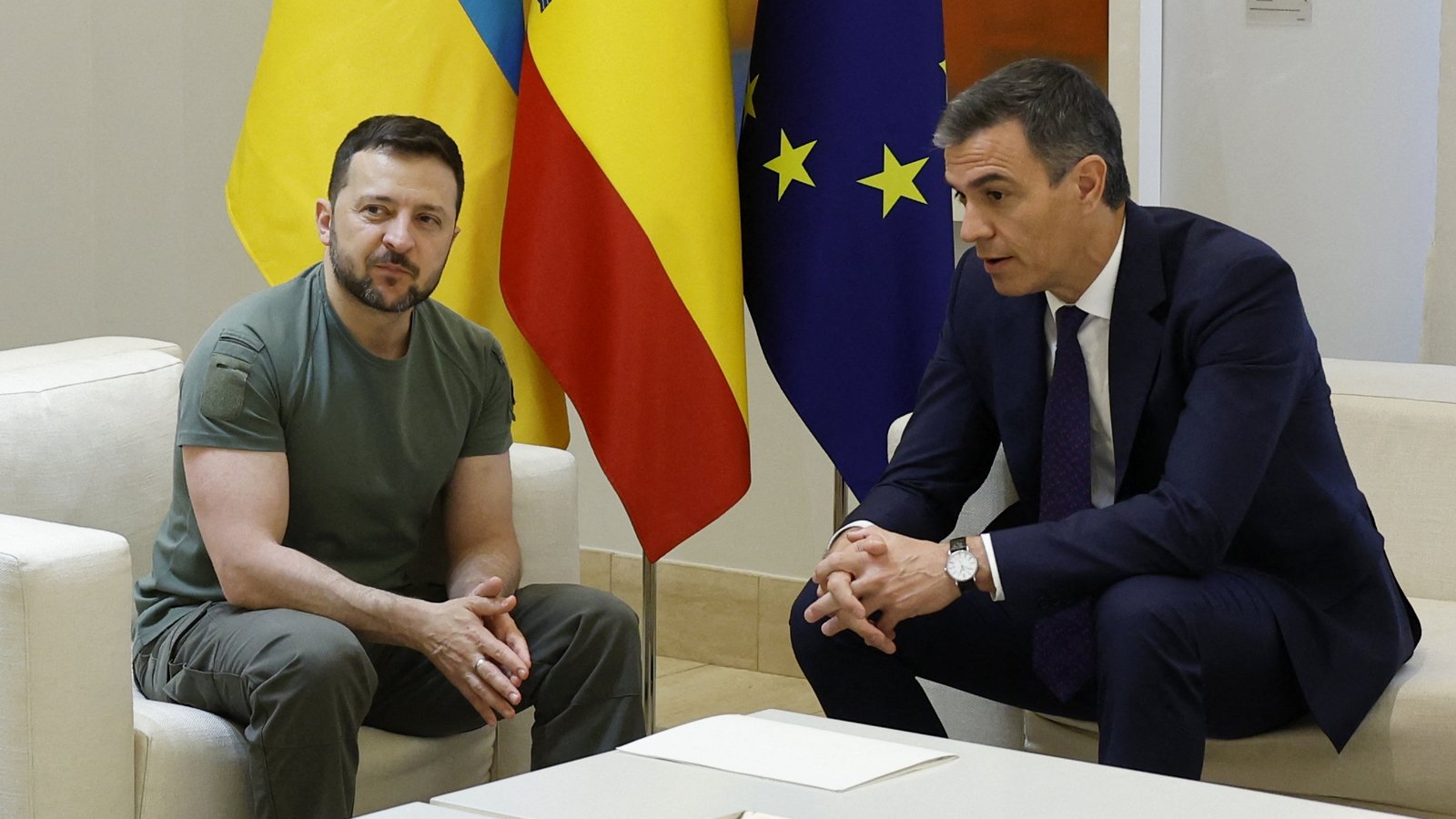Trump senses which way wind blowing when it comes to Gaza
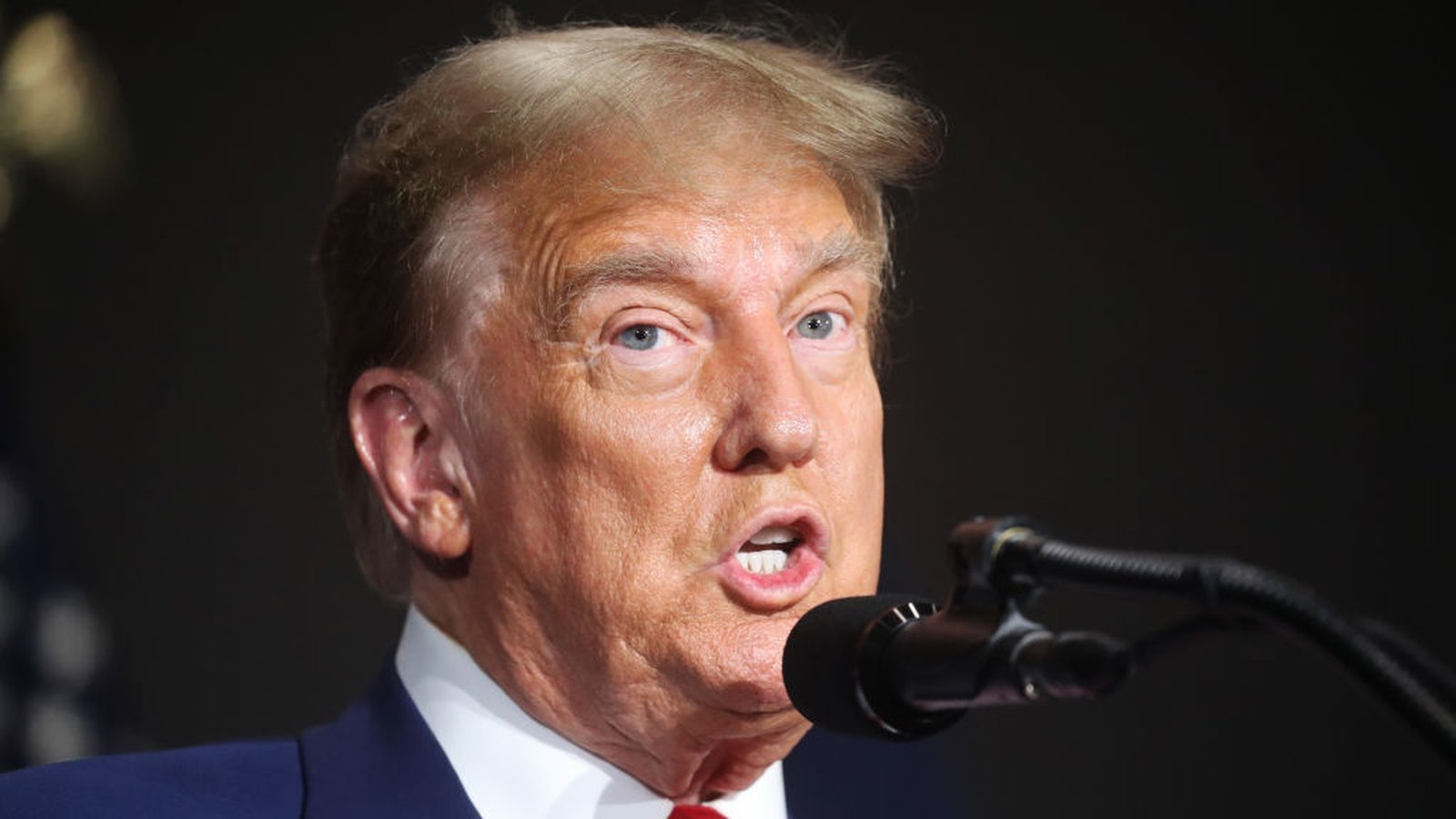
Jose Andres is one of the most esteemed figures in the United States.
He is one of those rare public figures whom nobody seems to have a bad word about.
A celebrity chef who became a successful businessman with a restaurant empire in Washington and beyond, he took his wealth and fame and turned it into the most practical sort of help for the poor and needy – hot meals.
World Central Kitchen (WCK), the charity he founded, gets food to people who need it in war zones and disaster areas.
Floods, hurricanes, earthquakes, tsunamis, pandemics, battlefields – WCK has done them all, with funding kept up by Mr Andres and his formidable media and political contacts list, compiled over years of bringing decent grub to DC’s hitherto underwhelming restaurant scene.
US President Joe Biden calls him a friend.
He called him on the phone after seven WCK aid workers were killed by an Israeli airstrike last Monday.
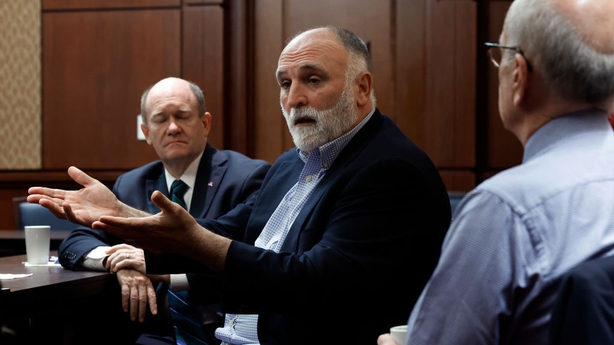
US media has spent the past week lamenting the loss of the aid workers, forensically detailing the three Israeli strikes in three locations that took out the team.
If Israel wanted to do something that would upset a huge number of Americans, bombing the WCK aid convoy was it.
Today @WCKitchen lost several of our sisters and brothers in an IDF air strike in Gaza. I am heartbroken and grieving for their families and friends and our whole WCK family. These are people…angels…I served alongside in Ukraine, Gaza, Turkey, Morocco, Bahamas, Indonesia. They… https://t.co/rM3xbsiQ1Q
— Chef José Andrés 🕊️🥘🍳 (@chefjoseandres) April 1, 2024
The attack came at a time when more and more public figures are coming out against the Gaza war, reflecting a deeper change in US attitudes both to the war and to Israel itself.
There is a Republican-Democrat split on the issue, with support for Israel stronger among Republican voters, and Republican politicians are less than outspoken on the issue.
But Donald Trump is pretty good at sensing which way the wind is blowing and has, for the second time in as many weeks, come out with some strong criticism of a country he has, up until now, been incredibly strongly behind – demonstrated by him moving the US embassy from Tel Aviv to Jerusalem in 2017.
In an interview with a conservative radio host Hew Hewitt (and therefore talking almost exclusively to a conservative, strongly pro-Israel audience), Mr Trump said he had advice for Israel: “What I said very plainly is get it over with, and let’s get back to peace and stop killing people.
“They have to get it done. Get it over with and fast because we have to – you have to get back to normalcy and peace.”
He added: “I’m not loving the way they’re doing it.”

Mr Trump was particularly critical of Israel’s releasing video of buildings being blown up and other military operations, calling them “the most heinous, most horrible tapes of buildings falling down”.
He added: “People are imagining there are a lot of people in those buildings…and they don’t like it…To me it doesn’t make them look tough. They’re losing the PR war. They’re losing it big.”
Those comments echo an interview he gave to Israeli newspaper Israel Hayom, published on 25 March, in which he said: “You have to finish up your war. To finish it up. You got to get it done.
“And I am sure you will do that. And we got to get to peace, we can’t have this going on.
“And I will say, Israel has to be very careful, because you’re losing a lot of the world, you’re losing a lot of support, you have to finish up, you have to get the job done.
“And you have to get on to peace, to get on to a normal life for Israel, and for everybody else.”
However, Mr Trump has also trash-talked the traditional bipartisanship that has characterized the US political establishment’s approach to Israel, using his social media platform Truth Social to post an attack on Democrat-voting American Jews, which means a big majority of them, saying: “They hate everything about Israel, and they should be ashamed of themselves, because Israel will be destroyed.”
Usually, Mr Trump seizes on any tactical advantage he can in the race for votes, and the longer the Gaza war drags on, the worse it gets for Mr Biden.
Mr Trump has given little to no clues about how he might handle the current Gaza conflict if he were still in office, other than repeating his claim that Hamas would not have launched its 7 October attack on Israel if he were still president.
His allies say he would continue his policy of putting maximum pressure on Iran, and trying to detach regional proxies such as Lebanon, Syria and Yemen from Tehran’s orbit.
They say he would also continue with the ‘Abraham Accords’ – the rapprochement between Israel and Saudi Arabia, which would form a centerpiece to a new, anti-Iranian security architecture in the Middle East.
A settlement of the Palestinian issue would also have to come as part of this new dispensation.
This is one of the Trump policies the Biden administration has continued with, although it was nearly derailed by the 7 October attack by Hamas.
Trying to figure out a resolution of the Palestinian issue is the hardest part.
The New York Times reported that Mr Trump has been keeping across the issue, having had a recent phone call with the Saudi crown prince Mohammed Bin Salman.
Usually, Mr Trump seizes on any tactical advantage he can in the race for votes and the longer the Gaza war drags on, the worse it gets for Mr Biden.
Of course he blames Mr Biden for doing a bad job, but Mr Trump too wants the Gaza war over quickly, so he has a shot at making more progress with his flagship foreign policy issue if he wins in November.
The strategic picture in the wider Middle East is why the Biden administration, and by extension any US administration, finds it difficult to align with public opinion in the face of various outrages, from the more than 100,000 casualties of this long-running Gaza campaign, down to the massacre of the WCK workers.
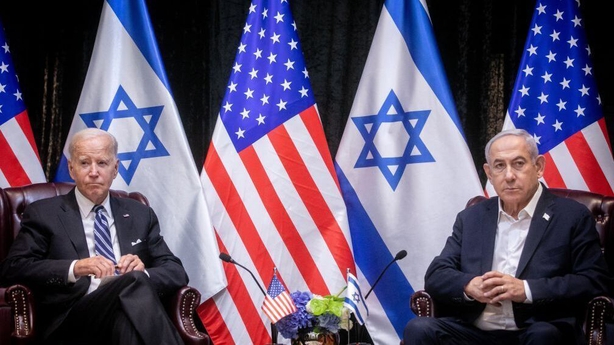
On Thursday, the president was on the phone again, this time to Benjamin Netanyahu.
It was the first time the two had talked since 18 March.
The White House characterized the call as direct, in which the president laid out firm instructions about how he expected Israel to co-operate with aid agencies and open more crossings to get more food into Gaza.
The next day more crossings were opened, and two senior Israeli army officers were sacked.
No, it is not the end of the war – and for many the US pressure does not go far enough.
But it is another milestone in America’s journey away from backing the Netanyahu government and its actions in Gaza.
The key points of the official US readout of the call are worth recalling:
- The president emphasized that the strikes on humanitarian workers and the overall humanitarian situation are unacceptable.
- He made clear the need for Israel to announce and implement a series of specific, concrete, and measurable steps to address civilian harm, humanitarian suffering, and the safety of aid workers.
- He made clear that US policy with respect to Gaza will be determined by our assessment of Israel’s immediate action on these steps.
- He underscored that an immediate ceasefire is essential to stabilize and improve the humanitarian situation and protect innocent civilians.
- And he urged the prime minister to empower his negotiators to conclude a deal without delay to bring the hostages home.
There was also a threat of more US action, summed up by White House national security spokesperson John Kirby, who said: “If we don’t see changes from their side, there will have to be changes from our side”.
But he refused to speculate on what those changes could amount to.
One of the president’s closest allies in politics, indeed a co-chair of his re-election campaign, is Delaware Senator Chris Coons, who said on Thursday he would, for the first time ever, support putting conditions on further US military aid to Israel if it attempts a massive military operation in Rafah without first protecting civilians.
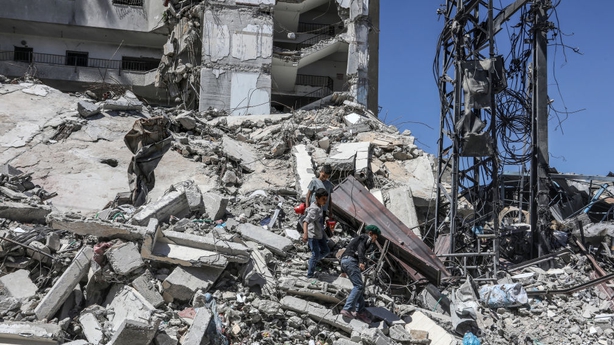
Former chair of the council on foreign relations, and former Northen Ireland envoy, Richard Haass said on Wednesday that Mr Biden should consider publicly reprimanding Israel.
These are all signs that dissatisfaction with Mr Biden’s policy has spread beyond the progressive and far left parts of the Democratic party, and into the centre ground of establishment Washington.
Polls are also finding a shift in public opinion on Gaza and Israel.
A Gallup poll published ten days ago showed a majority of Americans, 55% to 36%, disapproved Israels military action in Gaza.
For Democrat voters, 75% disapprove.
A Quinnipiac University poll found 52% of voters are against sending more military aid to Israel, with 39% in favour.
This is an exact reversal of the position when the same pollster asked the same question in November.
This is not to suggest that Americans are not in favour of supporting Israel – far from it.
But they are separating the cause of Israel from the current Israeli government and its policy in Gaza.
Read the latest stories from the Middle East
An in-depth poll published by Pew on 21 March showed that while around six in ten Americans (58%) say Israel’s reasons for fighting Hamas are valid, only 38% say the way the war has been conducted is acceptable, while 34% say it has been unacceptable.
Some 26% are unsure, reflecting a lack of engagement or interest in the issue.
The poll also confirms and adds detail to the generational rift over Israel-Gaza, with 18–29-year-olds far more critical of Israel than their parents’ generation.
While 60% of them hold favourable views of the Palestinian people, compared with 46% for the Israeli people.
However, the Pew research also shows that young voters are significantly less interested in Israel-Gaza than the over 50s.
Just 14% of them say they are following events there closely, compared with 30% of the over 50s.
Mr Biden is torn between his friendship for Israel, his shrewd appreciation of US strategic interests, his humanitarian instincts and the tears of his friend, Chef Jose Andres.
As a result, young voters are also less likely to know key facts about the ongoing war, as measured by their responses to knowledge questions in the survey.
But as we keep saying, in a very tight election, an important part of Mr Biden’s winning coalition, younger voters who turned out in record numbers, are becoming weak in their support for the president because of a war a long way from home that they know little about.
And even if the young voters cost Mr Biden the presidency in the autumn, US policy on the Middle East in terms of overarching strategy will not change, as Mr Trump’s comments make clear.
But the accumulated weight of tactical-level incidents such as the WCK massacre can alter strategy.
That is why the one thing that Mr Trump, Mr Biden, pro-Palestinian protestors on the streets here, and anti-government protestors on the streets of Jerusalem can agree on is that the Gaza war needs to stop.
Paradoxically, the hope that tactical outcomes will alter strategy is also an incentive for Hamas and its Iranian sponsors to keep fighting, and keep the US made bombs falling in response.
That regional strategic picture is why the evident tactical level issues – a ceasefire, food aid, hostage release – are proving so hard to resolve.
Mr Biden is torn between his friendship for Israel, his shrewd appreciation of US strategic interests, his humanitarian instincts and the tears of his friend, Chef Jose Andres.



